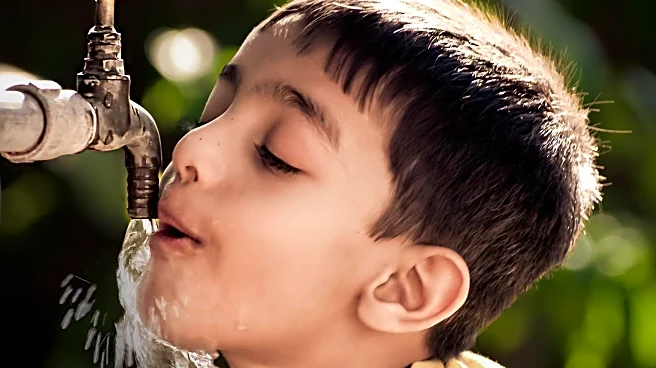What's Happening?
Pakistan has reported two new polio cases in the Sindh province, bringing the total number of cases to 29 for the year. The cases were detected in young girls in Badin and Thatta, highlighting ongoing challenges in the country's polio eradication efforts. Despite multiple immunization campaigns, Pakistan continues to struggle with vaccine hesitancy and access issues, particularly in remote areas. The country remains one of the last places where polio is endemic, alongside Afghanistan.
Why It's Important?
The emergence of new polio cases in Pakistan underscores the difficulties in eradicating the disease, which poses a significant public health challenge. The persistence of polio in Pakistan affects global health efforts, as the country is one of the last strongholds of the virus. The situation highlights the need for continued international support and collaboration to overcome barriers such as vaccine hesitancy and security threats to health workers. Successful eradication in Pakistan would mark a significant milestone in global health, reducing the risk of polio resurgence worldwide.
What's Next?
Pakistan plans to conduct another nationwide polio vaccination campaign from October 13 to 19, targeting 45 million children under the age of five. This effort will involve over 400,000 frontline workers going door-to-door to ensure vaccination coverage. The campaign aims to boost immunity levels among children and prevent further spread of the virus. Continued monitoring and adaptation of strategies will be crucial to address challenges and improve vaccination rates.
Beyond the Headlines
The ongoing struggle against polio in Pakistan highlights broader issues such as misinformation and distrust in vaccines, which can hinder public health initiatives. The attacks on health workers also reflect security challenges that complicate efforts to reach vulnerable populations. Addressing these issues requires a multifaceted approach, including community engagement, education, and improved security measures to protect health workers.










